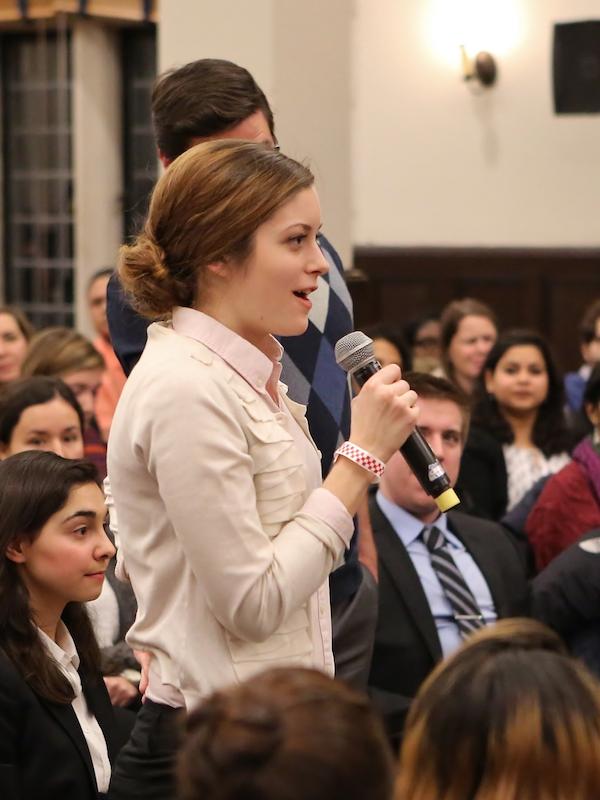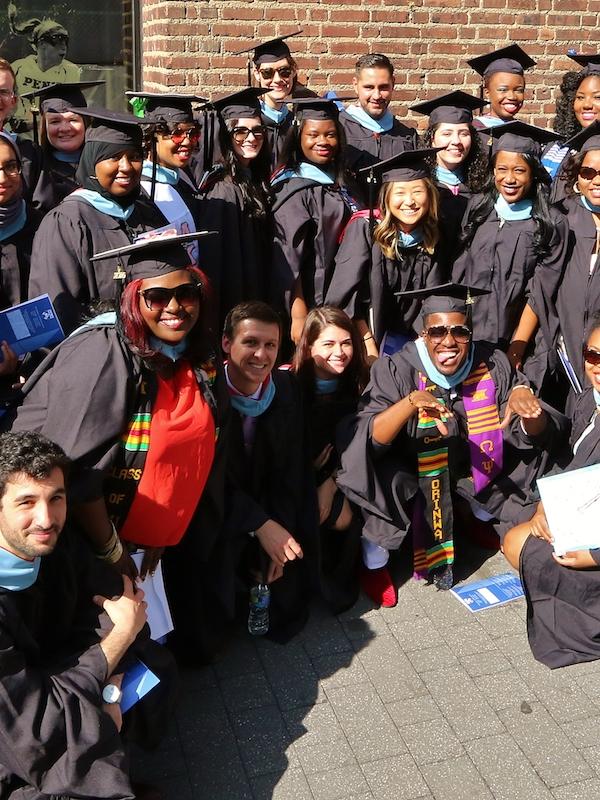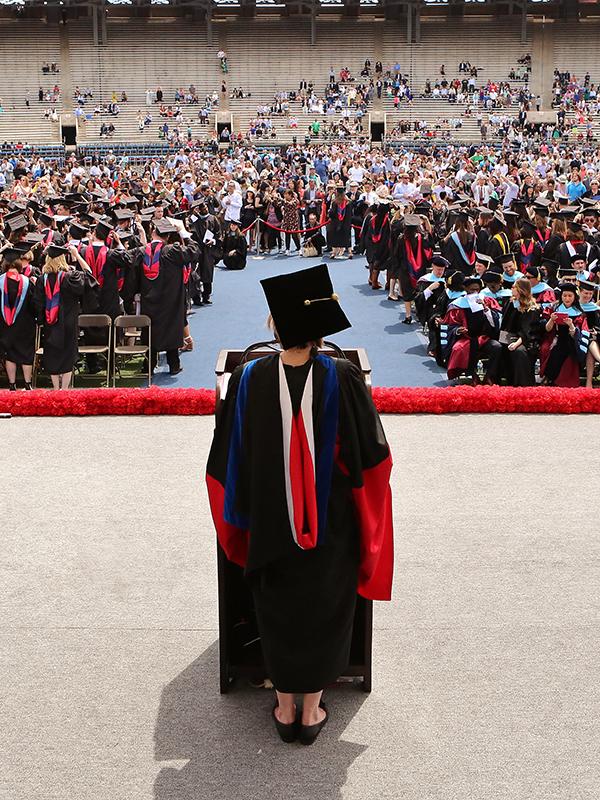Preparing Leaders to Serve the World
“I have a lot of faith in the nontraditional.”
By Linda S. Kadaba
Headshot courtesy of Universidad Latinoamericana de Ciencia y Technologia
When Silvia Castro, GRD ’10, graduated from Georgetown University and returned to her native Costa Rica, her career took off. After just six months as international office director at Universidad Lationoamericana de Ciencia y Tecnología (ULACIT), a private, bilingual university in San José focused on science and technology, she became the university’s student affairs director, supervising job placement, financial aid, and counseling programs. She continued to rise quickly to academic vice president, and earned a master’s in school leadership from Universidad Francisco de Vitoria in Madrid. In 2000, Castro became president of ULACIT. She was twenty-eight years old and just five years out of college.
“I would basically train people and move on,” says Castro, who grew up in a family of educators. “I organize. I fix it, and it works on its own.”
Seeking to step back and gain perspective on her field, Castro came to the Executive Doctorate program at Penn GSE after earning a master’s in education from Harvard.
“I had done management, but I didn’t understand it theoretically,” she says. Her thesis at Penn GSE, Castro says, was the first data-driven look at Costa Rica’s higher education system. Unlike in the United States, Costa Rica’s public institutions are generally more selective than private ones. Her study concluded that public universities primarily served the wealthy, while private institutions served the poorest, often without the financial capacity to fulfill appropriate standards of educational quality.
“It caused a sensation when it was published,” she says. “It’s a highly politicized issue.” What she learned helped her to position ULACIT as a selective private college with a focus on preparing leaders to serve the world. Approximately 30 percent of its students are low-income and supported by merit scholarships. For the past six years, QS Latin American University Rankings has placed it at number one for private universities in Central America.
The college uses only project-based learning, which emphasizes student-centered projects. It has a scholarship program, student services, and eighteen student clubs.
“Those are things that hadn’t happened before Penn GSE,” says Castro, whose current role as rector encompasses the functions of president and provost. “I was able to adopt a lot of concepts and ideas from faculty, from discussions.”
Castro says the format of the Executive Doctorate program—designed to fit the schedules of working professionals—served her and her classmates well. “Penn GSE didn’t sacrifice quality for format,” she says. “I have a lot of faith in the nontraditional.”
This article originally appeared in the Fall 2017 issue of The Penn GSE Magazine.




